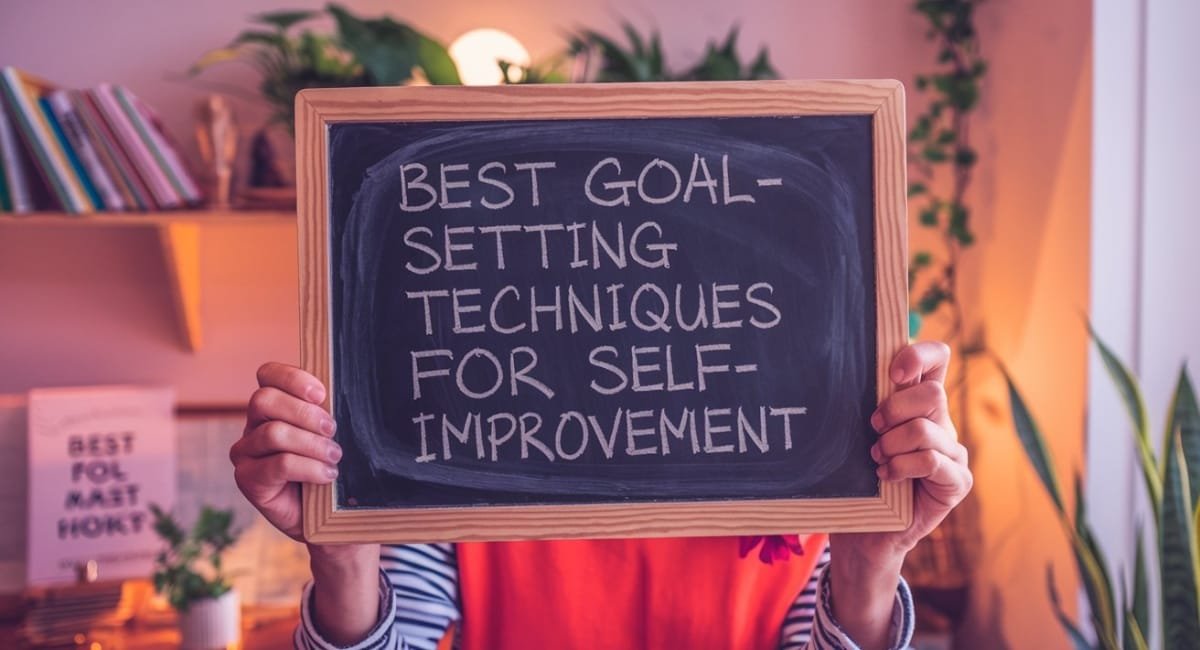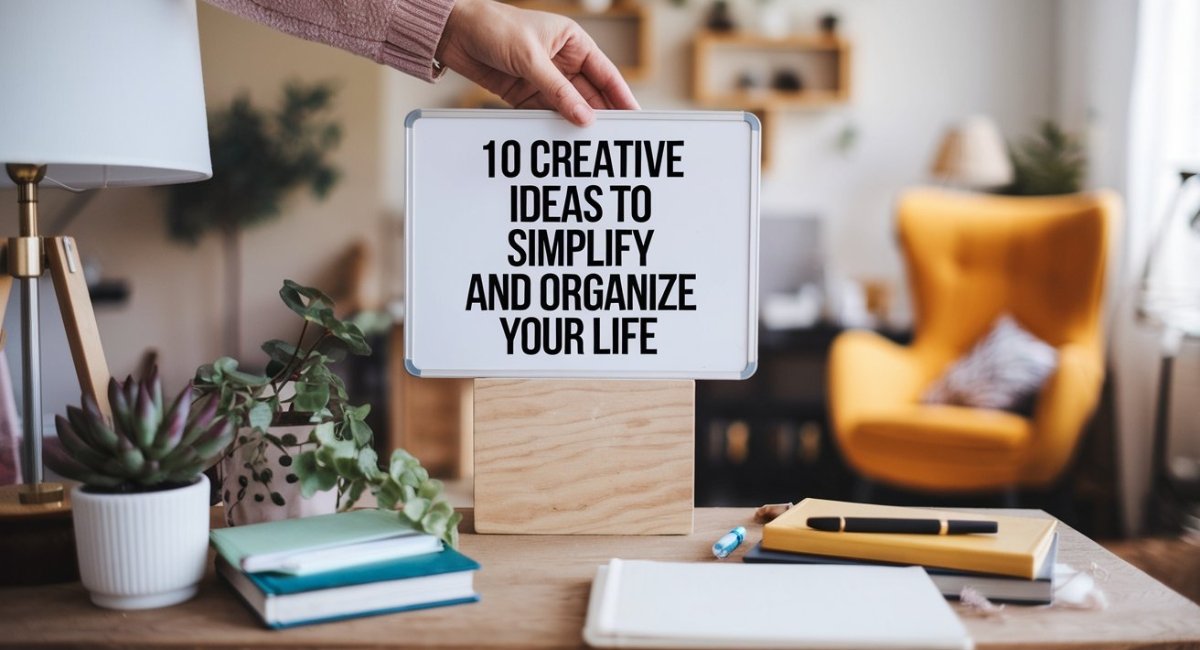Best Goal-Setting Techniques for Self-Improvement
This post contains paid and/or affiliate links. I make a small commission at no extra cost to you. Please see our Privacy Policy.
Setting clear goals for personal growth can boost your chances of success. Having a specific goal to aim for and checking in on it often helps you stay on track. It keeps you motivated and accountable, helping you stick to your plans for” Self-Improvement.”
Dr. Edwin A. Locke created the goal-setting theory. He showed how important it is to set tough but doable goals. These goals should be closely monitored, and progress should be updated regularly.
Locke and Dr. Gary Latham found five key elements for setting goals well: clarity, challenge, commitment, feedback, and task complexity. These principles help you achieve your goals.
Studies prove that writing down your goals leads to success. By putting your personal development goals in writing, you make them more accurate. This helps you work towards improving your communication skills, building better relationships, moving forward in your career, or getting healthier.

Understanding Personal Development Goals
Personal development goals are specific and measurable aims. They help you become a better version of yourself. These goals improve many life aspects, like self-awareness and a growth mindset.
What are personal development goals?
These goals focus on self-improvement. They help you grow and evolve. According to Jain et al. (2015), these goals are key for self-growth. They give you a roadmap to improve yourself. Examples include better communication skills, self-care, a growth mindset, and mindfulness.
The importance of having a “why” for your goals
Having a strong “why” for your goals is key. As Carter (2023) notes, goals vary by individual desires and situations. Aligning them with your values and passions leads to better results. Goals tied to a deeper purpose keep you motivated and committed to growth.
“Goals with soul” align with your values, passions, and purpose. They give you fulfillment and meaning. (LaPorte, 2014)
Principles of Effective Goal Setting
Setting goals for personal growth requires a strategic plan. The goal-setting theory outlines five key principles: clarity, challenge, commitment, feedback, and task complexity.
Clarity: Setting Clear and Well-Defined Goals
First, make sure your goals are clear and well-defined. Studies show that writing down goals helps you succeed more than just thinking about them, by asking yourself who, what, where, when, which, and why about your goals, you get a clear focus.
Challenge: Ensuring Goals are Achievable yet Challenging
Goals should be both achievable and challenging. The American Psychological Association says easy goals don’t push you to grow. But goals that are too hard can make you feel frustrated. Try to set goals that challenge you but are still possible to reach.
Commitment: Fully Committing to Your Goals
Being fully committed to your goals is key. The APA says motivation, willingness to monitor behavior, and willpower are important for reaching goals. Align your goals with your values and feel personally invested in them to stay committed.

The SMART Method for Setting Goals
Setting clear goals is key to improving yourself. The SMART method helps you set and reach your goals. It ensures that your goals are Specific, Measurable, Attainable, Realistic, Timely, and Tangible.
Specific: Defining Clear and Measurable Goals
Having specific goals is vital for success. Clear goals help you know what you’re aiming for and how to track your progress. Without clear goals, you might get lost and lose motivation.
Measurable: Establishing Benchmarks for Progress
Goals should be measurable so you can see your progress. They often include numbers or timelines to track your success. This way, you stay focused and accountable.
Attainable: Setting Realistic and Achievable Goals
Your goals should challenge you but be attainable. Setting too high goals can make you feel bad if you can’t reach them. Setting realistic goals keeps you motivated and excited to achieve them.
Best Goal-Setting Techniques for Self-Improvement
September is Self-Improvement Month, a time to work on personal growth. Some strategies work well when setting goals for self-improvement and personal growth.
Visualization and Mental Workouts: Seeing your goals happen can make your brain ready for success. This visualization method helps you get mentally prepared.
Actionable Steps and Deadlines: Breaking goals into smaller, attainable steps with realistic deadlines increases your success chances. This action plan makes reaching your goals easier.
Celebrating Progress: It’s key to reward yourself during your journey. Celebrating your wins, big or small, keeps you motivated and positive.
It is vital to check and adjust your goals often. This ensures they stay relevant and achievable. Using these goal-setting techniques starts a rewarding journey of personal growth and self-improvement.

Developing an Action Plan
To reach your goals, you need a strong action plan. It’s important to break your goals into smaller steps. This makes progress easier and keeps you motivated.
Setting realistic timelines and deadlines for each step is crucial. It helps you stay on track and keeps your goals within reach.
Breaking Down Goals into Smaller Steps
Big goals can feel too much. By breaking them down into smaller, bite-sized actions, you make a clear path to success. This approach makes tasks easier and lets you celebrate small wins.
Setting Realistic Timelines and Deadlines
Good goal-setting means more than just knowing the end result. You must set timelines and deadlines for each step. This adds urgency and keeps you focused.
Be realistic when setting these timelines. Think about any challenges or surprises that might come up.
“Specific goals are emphasized for tracking progress effectively; for example, setting a goal like ‘I want to lose 25 pounds by the Fourth of July’ provides a clear target for achievement.”
By breaking goals into smaller steps and realistic timelines, you get a roadmap for your self-improvement journey. Stay committed, and you’ll be on your way to making your dreams come true.

Building Habits and Routines
Being consistent is key to reaching your self-improvement goals. By making habits and routines that match your goals, you’ll move forward easily. These habits can include waking up early, exercising, or practicing mindfulness. They help you reach your personal development goals.
Creating Consistent Habits to Support Your Goals
Experts say setting clear, doable goals is the best way to get what you want. But research finds focusing on systems can lead to better results. Winners and losers often have the same goals, showing goals don’t always mean success. Just hitting a goal doesn’t change things if the system stays the same.
- Make habits and routines that help your goals, like:
- Waking up early to be productive
- Exercising often for better health
- Practicing mindfulness for focus and peace
- Your habits and routines should be clear and detailed for easier use.
- Start with clear goals and habits that really help your growth.
“A goal-focused mindset might lead to bouncing back to old habits after reaching a goal. Long-term success is better with systems and ongoing improvement, not just goals.”
Building steady habits and routines makes an environment that supports your self-improvement goals. It’s not just about setting goals. It’s about making the habits and systems that help you reach them.
Overcoming Obstacles and Setbacks
Reaching your goals means going through tough times. It’s key to stay motivated and strong. By thinking positively and finding solutions, you can use hard times to grow.
Strategies for Staying Motivated and Resilient
When obstacles come up, keep a positive attitude and be kind to yourself. Being resilient helps you bounce back and stay positive. Celebrating your wins keeps you focused on your goals.
- Develop a positive, growth-oriented mindset: Thinking positively helps you overcome obstacles by focusing on solutions.
- Practice self-compassion: Being kind to yourself in tough times boosts your well-being.
- Celebrate small wins: Most successful people celebrate their small victories to stay motivated.
Adjusting Goals When Necessary
It’s key to be flexible and adjust your goals if needed. Clear, achievable goals give direction and motivation. Breaking them down helps too. Seeing changes as chances to grow keeps you moving forward.
- Adjust your goals as needed: Being adaptable helps you handle changes and see them as growth opportunities.
- Break down larger goals into smaller, actionable steps: Most people plan with clear steps to tackle obstacles.
- Seek support from others: Talking to friends, family, or experts can offer new ideas and help.
Remember, facing obstacles and setbacks is part of getting better. With a strong mindset, flexible goals, and support, you can get through these challenges. This keeps you moving towards your goals.
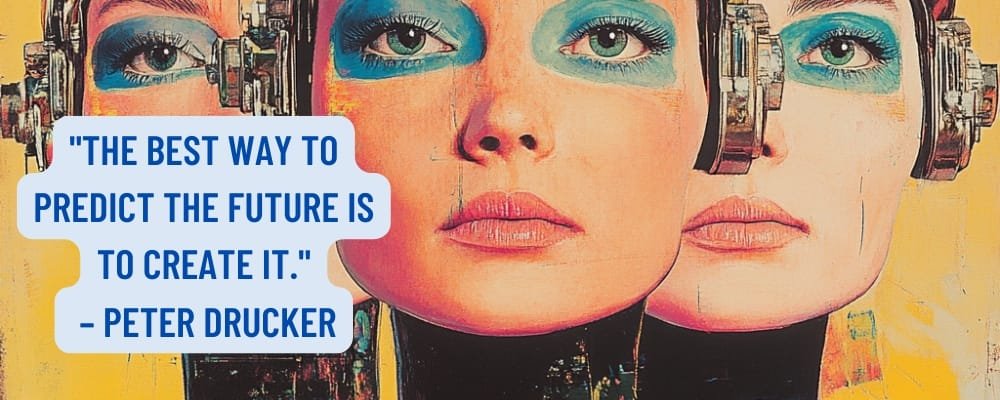
Tracking and Celebrating Progress
Starting your self-improvement journey means keeping an eye on your progress and celebrating your wins. Set milestones to see how far you’ve gone. Reward yourself for small victories to keep you motivated.
Recognizing your achievements boosts your sense of pride and motivates you to keep going.
Monitoring Your Progress and Achievements
It’s key to track your progress towards your goals. Break big goals into smaller, trackable steps. Use a journal, an app, or a bullet journal to log your daily and weekly progress.
Look back on your weekly wins to make sure you’re on track for your bigger goals. If needed, adjust your plans to stay on course.
Rewarding Yourself Along the Journey
When you’re moving towards your goals, don’t forget to celebrate your victories, big or small. Enjoy a favorite snack, take a break, or do something you love. Rewarding your efforts keeps you motivated and strengthens the good habits you’re building.
“The true joy in life is to be a force of fortune, instead of a feverish, selfish little clod of ailments and grievances, complaining that the world will not devote itself to making you happy.” – George Bernard Shaw
The path to self-improvement is long. By tracking your progress and celebrating your achievements, you’ll stay motivated and focused on your goals.
Seeking Support and Accountability
Starting a self-improvement journey is exciting and tough. Setting big goals is key, but having the right support is crucial. Accountability partners and mentors play a huge role in reaching your goals.
The Power of Accountability Partners
Research shows that having achievable goals is better for your well-being than just wanting to achieve them. Accountability partners help keep your goals on track. They check in with you, boost your motivation, and help you celebrate your wins.
This can make success rates go up to 95% when you work with an accountability partner. The American Society of Development and Training found this to be true.
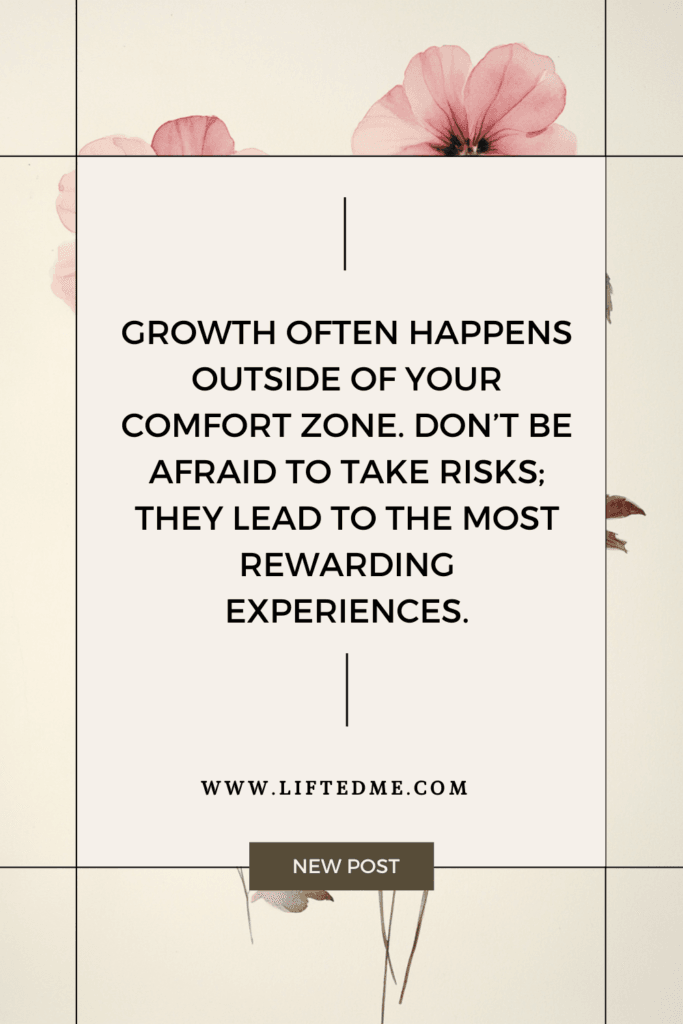
The Guidance of Mentors
Finding mentors can change the game in your self-improvement journey. They offer guidance, new views, and keep you on track. Whether it’s a colleague, a leader, or a friend, mentors help you overcome challenges and stay focused. They’re key to growing and reaching your goals.
You don’t have to do it alone. A network of accountability partners and mentors can unlock your potential and help you reach your goals.
Mindset Shifts for Personal Growth
Having the right mindset is key to reaching your full potential and growing personally. A big mindset shift is adopting a growth mindset. This means believing you can improve your skills and talents with hard work and a desire to learn.
Switching from a fixed mindset to a growth mindset changes how you see challenges. Instead of seeing them as barriers, you see them as chances for personal growth and getting better. This change helps you stay driven, strong, and focused on your goals, even when things get tough.
As research has shown, those with a growth mindset are more innovative and adaptable. They also feel more satisfied and successful in their personal and work lives.
Embracing Challenges as Opportunities
A growth mindset teaches you to see challenges as chances for personal growth, not just hurdles. Changing how you look at difficulties opens up new possibilities and speeds up your self-improvement journey.
- Celebrate small wins and praise yourself for your progress. This boosts your motivation and helps you reach your big goals.
- Take time to reflect on your actions and be open to trying new things when what you’re doing now isn’t working. This is a chance to learn and grow.
- Be around people who support and give you feedback. They can help you get past tough times.
The journey to personal growth isn’t always straightforward. But with a growth mindset, you can handle the ups and downs with strength and determination. By changing how you see things and focusing on the process, not just the outcome, you can open up new doors and meet your goals.
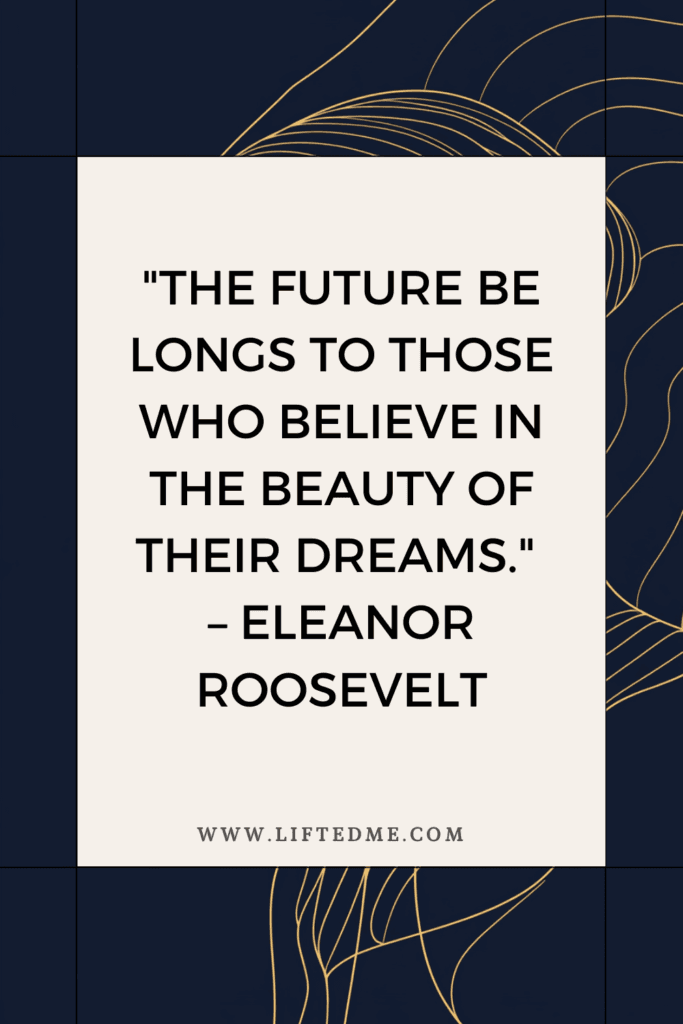
Conclusion
Setting and reaching personal development goals is a key to growing in all life areas. By using effective goal-setting methods, making an action plan, and building good habits, you can reach your full potential. This leads to real progress towards your goals.
It’s important to be flexible, get support, and celebrate your wins. With hard work and knowing yourself, goal-setting and personal development can change your life. The main thing is to keep a positive and strong mindset. See challenges as chances to grow and keep improving your plans for self-improvement.
We hope this article has given you the tools to move forward in your goal-setting and self-improvement journey. Take the first step, stay on track, and enjoy the feeling of making your dreams real.
FAQ
What are the key principles of effective goal-setting?
Effective goal-setting follows five key principles. These include clarity, challenge, commitment, feedback, and task complexity. Goals should be clear and challenging yet achievable. You must fully commit to them.
Regularly check and reflect on your goals. Also, give yourself time and space to complete complex goals.
What is the SMART method for setting goals?
The SMART method helps set effective goals. Goals should be Specific, Measurable, Attainable, Realistic, and Timely. Setting clear goals helps you stay focused and know when you’ve reached them.
Make sure your goals are realistic based on your current situation. This is key for success.
What are some effective goal-setting techniques for self-improvement?
Techniques like visualization and mental workouts help with goal-setting. They connect your brain’s intentions to your body. Visualizing your goals helps make them feel real.
Break your goals into smaller steps with deadlines. Rewarding yourself along the way boosts your success chances.
Why is developing an action plan important for achieving goals?
An effective action plan is vital for reaching your goals. Break down big goals into smaller steps. Set realistic timelines for each step.
This makes your goals feel less overwhelming and more achievable. Deadlines keep you motivated and on track.
How can building consistent habits and routines support goal achievement?
Consistent habits and routines support your goals. Create habits that align with your goals. This makes progress easier and your goals part of your daily life.
Habits like waking up early or exercising regularly help achieve your goals.
How can you overcome obstacles and setbacks when working towards your goals?
Overcoming obstacles and setbacks is part of achieving goals. Stay motivated and resilient with strategies like seeking support and celebrating small wins. Be flexible and adjust your goals as needed.
Don’t let temporary setbacks discourage you.
Why is it important to track and celebrate your progress?
Tracking and celebrating your progress keeps you motivated and on track. Set checkpoints to check your progress. Reward yourself for small wins.
Recognizing your achievements boosts your motivation and encourages you to keep going.
How can seeking support and accountability help with goal achievement?
Support and accountability from others boost your goal achievement. Find accountability partners or mentors for encouragement and feedback. They help you stay motivated and celebrate your successes.
Why is adopting a growth mindset important for personal growth?
A growth mindset is key for personal growth. Believe you can improve your abilities with effort and learning. See challenges as growth opportunities, not obstacles.
This mindset opens new possibilities and speeds up your self-improvement journey.
